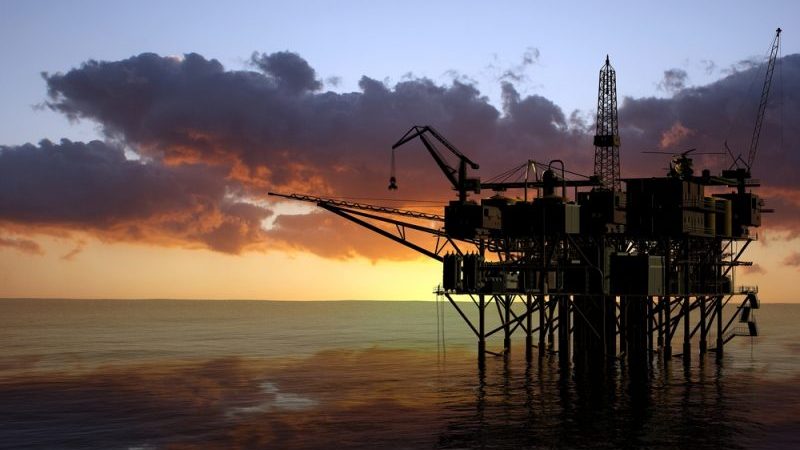Climate campaigners who have spent decades battling Big Oil might be tempted to celebrate the chaos wreaked on the industry by the response to the coronavirus pandemic.
ExxonMobil has slashed its capital spending by 30%, for example, as global demand nosedives by an estimated 25-35 million barrels per day, from a pre-Covid level of around 100mbd.
They – we – should resist schadenfreude, however.
For one thing, it entails a callous indifference towards rank-and-file oil workers, who are an important political constituency that Green New Dealers have pledged to protect.
More broadly, in a world with far more oil the ground than we can safely burn, cooperation among producers is vastly preferable to all-out competition.
Last week’s Opec++ meeting, resulting on Sunday in a historic deal to curb oil production, contains important lessons for the climate community.
Renewable energies under threat in 2020 from coronavirus, oil price slump
Let’s look at the problem caused by a sudden, massive destruction in demand. In the first instance, excess production flows into storage, but this is running out. That leaves a stark choice: let the market rule and production shutdowns be determined by who runs out of storage first, or agree to apportion the necessary reductions fairly between producers, avoiding the chaos of overflowing pipes and rock bottom (or even negative) prices.
Those to suffer the most from a failure to cooperate are developing countries like Nigeria, Angola, Iraq and Algeria, where a collapse of oil revenues is likely to be catastrophic.
Yet it is the world’s three major producers – the US (pre-Covid production of 13mbd), Saudi Arabia (12mbd), and Russia (11.3mbd) – that are indispensible to a successful global response, notwithstanding being relatively insulated from the immediate threat (Russia and Saudi Arabia because of their substantial cash reserves, the US because of its diversified economy). Sound familiar?
Global demand for oil had one major short-term peak, in 1979, after which it fell in absolute terms through 1983 before rebounding and resuming its steady climb.
Demand is similarly likely to rebound once the worst of Covid-19 is past. Volumetrically speaking, therefore, we are (almost certainly) still in the first half of the history of the industry. But true peak demand is coming, and oil producers know it. As I wrote in January, this presents Opec with three options:
- Dissolve itself, harmoniously or otherwise, allowing pure competition to determine the price of oil, and each individual producer to minimize the stranding of its own reserves;
- Adopt a ‘Goldilocks’ strategy, maintaining supply constraint with the aim of holding prices at the highest point at which they are low enough to ensure global dependence on oil is maintained for as long as possible, thereby maximizing the total amount of oil produced;
- Accept that climate change makes some level of stranding not only inevitable but necessary, and pursue a strategy of leaving as much oil in the ground as possible, equitably distributing such oil as remains to be produced under such a scenario.
Until recently, the possibility of the third approach – a responsible transition – was frustrated by the unlikelihood of major non-Opec producers, notably the United States, ever joining the organization in an agreement to limit production.
Even if it hasn’t yet completely broken it, Covid-19 has seriously threatened that taboo. It forced a rethink not only by Texas oil regulators but by at least one of Opec’s previously most trenchant critics, President Donald Trump, who is now credited with helping shepherd an unprecedented pact to its conclusion.
The announcement Sunday of a deal that will see 9.7mbd in supply cuts for May and June brings an end to an all-out price war in the market, but will mitigate rather than eliminate the yawning gap between supply and demand.
Climate news in your inbox? Sign up here
Initial prospects of concrete reduction commitments from the US, Canada, Norway and others have given way to vague and as-yet-unquantified assurances of “market-driven” reductions from G20 nations outside the Opec+ alliance. Considering the respective positions of their economies it doesn’t seem obvious why Nigeria should be cutting production to make room for Norway.
It thus remains to be seen whether the deal will be remembered as little more than a plaster on an open wound, or as the start of a truly global effort to rationally manage the international oil industry.
Clearly, there is a difference between cooperation to manage a short-to-medium term demand disruption from a global pandemic, and cooperation to divide long-term production in a manner that keeps emissions on a safe trajectory. Clearly too, leadership in Texas and DC – to say nothing of Russia and Saudi Arabia – would likely need to change for the latter to become a realistic prospect. It is also not like the industry is unaware of the danger of the precedent it is setting for those wishing to see its managed decline.
Even so: if the oil world is ever to respond in a sane and cooperative manner to the dangerous reality of climate change, a sane and cooperative response to the dangerous reality of Covid-19 would be an auspicious start.
Michael Dobson is a PhD candidate at the New School for Social Research focused on supply-side climate policy. Follow him on twitter @michaeldobsonNZ
